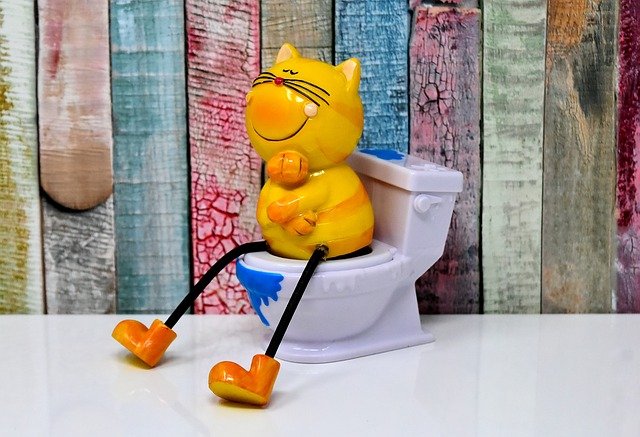
Everything You Need to Know About Urinary Tract Problems in Cats
FLUTD or feline lower urinary tract disease is a common cause for many feline emergency veterinary visits. This condition comes in two forms the obstructed and non obstructed forms. In some cases the unobstructed form can progress into the obstructed form—a life threatening, emergency condition.
The causes of FLUTD are many and varied. They include trauma, urinary stones, a mucus plug, UTI, underlying kidney disease, and it can have no discernible cause whatsoever. Cats are mysterious! No matter how it happened, the result is inflammation of the urinary tract. Why is that bad? If your kitty can’t pee, it will buildup urine, distending its bladder. This can lead to electrolyte abnormalities that poison its blood. The bladder itself rupture from the buildup of urine that has no way to escape.
Common signs that your cat is in urinary distress include:
- Blood in the urine
- Straining to urinate
- Urination outside the kitty box
- Lethargy
- Frequent urination
- Meowing while attempting to urinate
- Expressing pain if you touch its abdomen
- Many owners also notice their cat straining to defecate
- Some cats excessively groom their nether regions, or drag them across the floor.
While FLUTD can occur in both male and female cats, male cats are more prone to developing the life threatening, obstructive form. This is because males have a long, narrow urethra that can become blocked more easily than the female’s shorter, wider urethra. Obese cats are more prone to developing FLUTD. Diets high in minerals or with a high(alkaline) PH can predispose cats to developing FLUTD. Now, what should you do when you see these signs in your beloved pet. The best answer is prompt veterinary attention.
Once our veterinarians have checked your pet, we will often recommend treatment which may consist of blood work, intravenous fluids, relieving the obstruction by passing a urinary catheter, more fluids, and trying to find what caused your kitty to develop this condition. We might also recommend medications to reduce inflammation, sedate your cat, and provide it relief from pain. If we suspect urinary stones, we may give your cat a radiograph. Abdominal ultrasound is a way to see the stones that can’t be seen on radiographs. urinalysis will be performed help find the cause. Any cats who come in with frequent urinary problems will get a culture of their urine to look for potential bacterial culprits. Your cat will likely need to stay in the veterinary hospital for twenty-four to forty-eight hours to make sure that they do not obstruct again.
As we stated at the outset, the most frustrating thing about FLUTD is the difficulty in figuring out its causes. If you notice any of the signs of FLUTD in your kitties, please don’t try to figure out why—Take them to a veterinarian immediately. Prompt treatment can save your cat’s life.
For more information, contact our team at VETSS, a Charlottesville VA urgent care animal hospital!

